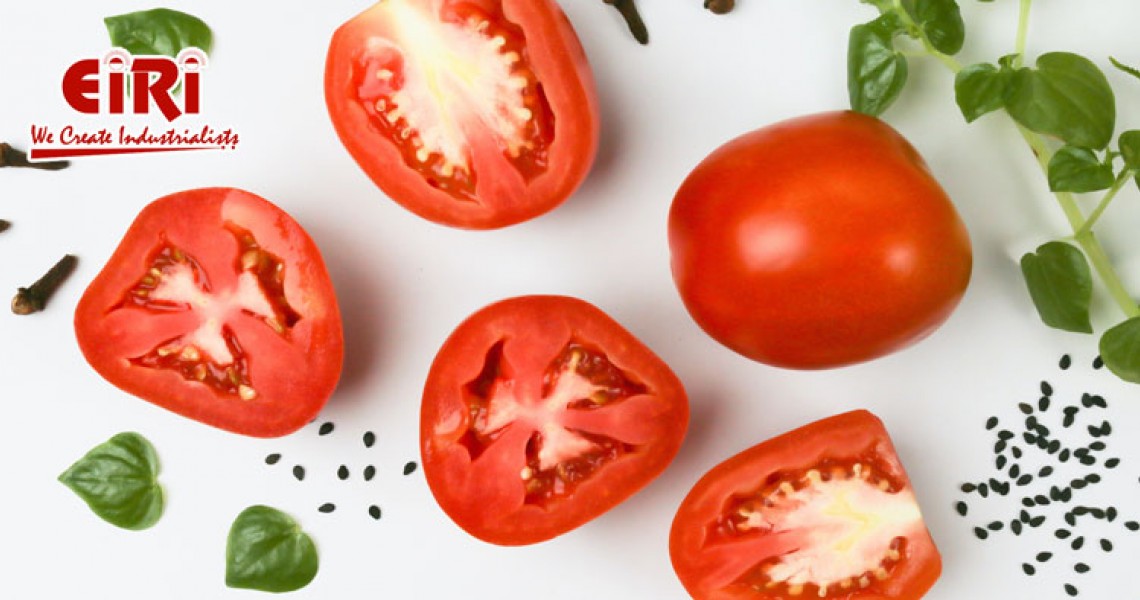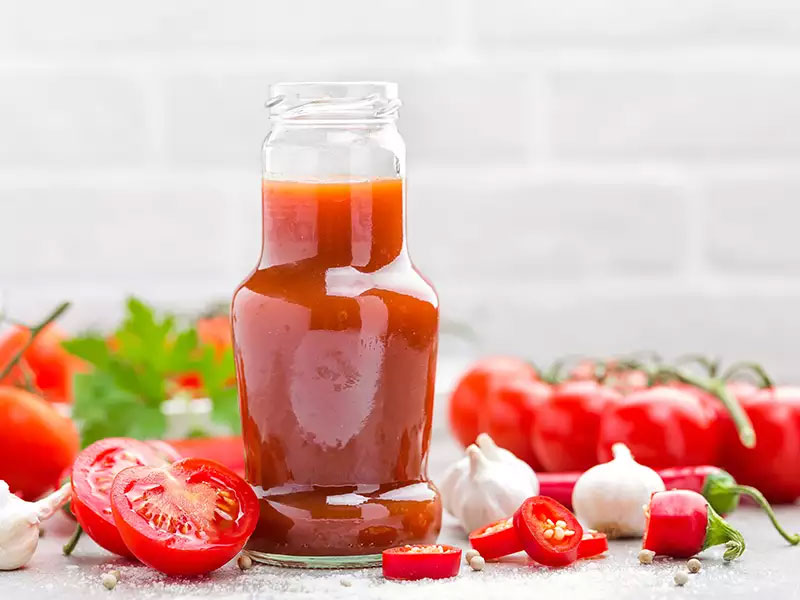Exploring Lucrative Ventures in the Tomato Industry

The tomato, often referred to as the "King of Vegetables," not only reigns supreme in culinary delights but also offers a plethora of business opportunities in various forms. As a staple ingredient in cuisines worldwide, tomatoes form the foundation of numerous dishes, from tangy tomato sauces to hearty soups and rich purees. Beyond its undeniable gastronomic importance, the tomato holds immense potential for entrepreneurs seeking to venture into the food processing industry. In this comprehensive guide, we'll delve into the thriving markets of tomato-based products, focusing on tomato sauce, puree, and soup businesses. We'll explore the current market landscape, delve into the nuances of each business type, and uncover the promising future prospects that await those who wish to capitalize on the ever-growing demand for quality tomato-based products.
Unlocking Profitable Business Potential
The tomato-based products industry presents an array of compelling reasons for entrepreneurs to consider entering the market. The versatility of tomatoes allows for a diverse range of products, each catering to different consumer preferences and needs. Tomato sauce, puree, and soup are staples in kitchens around the world, transcending cultural boundaries. This wide-spread popularity ensures a steady demand, making these ventures not only viable but also potentially highly profitable.
Furthermore, the growing consumer trend towards healthier and natural food choices has intensified the demand for organic and preservative-free products. Entrepreneurs who emphasize the use of fresh, locally sourced tomatoes can tap into this health-conscious market segment, elevating the perceived value of their products.
The cost-effectiveness of tomato-based businesses is another attractive aspect. Tomatoes are widely cultivated, and their availability ensures a stable supply, reducing the risk of supply chain disruptions. Moreover, tomatoes can be processed into various forms, minimizing wastage and maximizing resource utilization. This efficiency contributes to higher profit margins.
In an increasingly fast-paced world, convenience is cherished. Tomato-based products offer precisely that – convenience without compromising on taste and quality. Ready-to-use tomato sauce, puree, and soup cater to the demands of busy households, working professionals, and even the food service industry. This convenience factor further enhances the business potential of these ventures.
As we delve into the specifics of tomato sauce, puree, and soup businesses, we'll uncover the nuances of each sector, exploring production processes, market trends, and growth prospects. Whether you're a culinary enthusiast or a savvy entrepreneur, the tomato-based product industry beckons with enticing opportunities waiting to be explored and nurtured.
Starting a Tomato Sauce Business: From Concept to Market
Tomato sauce, with its universal appeal and culinary versatility, presents a promising business opportunity for entrepreneurs. The demand for this kitchen staple continues to rise, making the tomato sauce business an attractive venture for those with a passion for food and a knack for business.
Setting Up Your Tomato Sauce Business
- Research and Planning: Begin by researching the market and identifying your target audience. Determine the type of tomato sauce you want to offer – from traditional to gourmet, spicy to sweet. Create a business plan outlining your goals, target market, pricing strategy, and marketing approach.
- Ingredients and Recipe Development: Sourcing high-quality tomatoes is crucial. You can choose to work with local farmers or establish relationships with suppliers. Develop a signature recipe that sets your sauce apart, considering taste, texture, and any unique features.
- Production Facility: Depending on the scale of your business, you can set up a commercial kitchen or partner with a co-packer. Ensure that your facility complies with food safety regulations and standards.
- Equipment: Invest in the necessary equipment for processing, blending, cooking, and packaging. This may include blenders, cookers, bottling machines, and labeling equipment.
- Quality Control: Implement stringent quality control measures to maintain consistency in taste, texture, and safety. Conduct regular taste tests and ensure that your product meets all regulatory standards.
- Packaging and Branding: Design an eye-catching label and packaging that reflects the quality and essence of your tomato sauce. Packaging should be practical and resonate with your target market.
- Distribution: Decide whether you'll focus on local markets, online sales, or both. Establish relationships with local retailers, farmers' markets, and online platforms to ensure your product reaches your customers.

Market Potential of Tomato Sauce Business
The market potential for tomato sauce is substantial and diverse, offering ample opportunities for growth and innovation:
- Growing Demand: Tomato sauce is a kitchen staple used in various cuisines globally. Its versatility ensures a consistent demand among households, restaurants, and foodservice providers.
- Health and Convenience: Consumers are increasingly seeking healthier and more convenient options. Offering organic, preservative-free, or low-sodium tomato sauces can tap into this health-conscious market segment.
- Culinary Creativity: Gourmet and specialty tomato sauces cater to food enthusiasts who appreciate unique flavor profiles. Crafting artisanal sauces using premium ingredients can set your brand apart.
- Private Labeling: Collaborating with local eateries, cafes, and restaurants for private labeling can enhance your brand's visibility and credibility.
- Online Presence: Building an online presence through e-commerce platforms and social media can expand your reach beyond local markets, reaching consumers across regions.
- Diversification: Consider diversifying your product line with variations like pasta sauces, pizza sauces, or ethnic flavors to cater to a broader customer base.
- Sustainability: Emphasizing sustainable practices, such as using locally sourced ingredients and eco-friendly packaging, can resonate with environmentally conscious consumers.
The tomato sauce business is not only about offering a condiment; it's about creating a product that enhances meals and enriches culinary experiences. By focusing on quality, innovation, and meeting consumer preferences, your tomato sauce business can thrive in a competitive market.
Entering the Tomato Puree Business: A Recipe for Success
Tomato puree, a concentrated and versatile form of tomatoes, serves as a foundational ingredient in countless dishes. Capitalizing on the popularity of tomato-based recipes, starting a tomato puree business can be a lucrative endeavor. With its wide range of applications and steady demand, tomato puree offers a promising opportunity for aspiring entrepreneurs.
Setting Up Your Tomato Puree Business
- Market Research: Begin by conducting thorough market research to understand the demand for tomato puree in your target market. Identify potential competitors and their product offerings.
- Sourcing Tomatoes: The quality of your tomato puree hinges on the quality of the tomatoes you use. Partner with local farmers, cooperatives, or suppliers to ensure a consistent supply of fresh and ripe tomatoes.
- Processing Facility: Establish a processing facility equipped with the necessary machinery for washing, peeling, grinding, and packaging. Compliance with food safety regulations is paramount.
- Production Process: Design a production process that ensures the preservation of the tomatoes' flavor, color, and nutritional value. This may involve blanching, peeling, pureeing, and heat treatment.
- Quality Control: Implement stringent quality control measures to maintain the integrity of your tomato puree. Regular testing and monitoring ensure that your product meets the highest standards.
- Packaging and Labeling: Choose packaging materials that preserve the freshness of the puree. Develop appealing labels that convey information about your product's quality and usage.
- Distribution Channels: Determine your distribution strategy – whether you'll target retail outlets, restaurants, or both. Establish partnerships with distributors and retailers to reach a wider audience.

Market Potential of Tomato Puree Business
The tomato puree market holds significant potential and offers opportunities for growth and innovation:
- Food Processing Industry: The food processing industry relies heavily on tomato puree as a base for various products, including sauces, soups, stews, and curries.
- Home Cooks: Tomato puree serves as a convenient alternative to fresh tomatoes for home cooks. Its versatility in cooking applications makes it a staple in kitchens.
- Restaurant and Catering Services: The hospitality sector, including restaurants, hotels, and catering businesses, depends on tomato puree for efficient meal preparation.
- Global Cuisine: Tomato puree is an essential ingredient in many global cuisines, from Italian pasta sauces to Indian curries. This diverse appeal ensures a steady demand.
- Health-Conscious Consumers: Organic and preservative-free tomato puree appeals to health-conscious consumers seeking clean and natural ingredients.
- Export Opportunities: With the demand for ethnic foods rising globally, exporting high-quality tomato puree can open up international markets.
Starting a tomato puree business requires meticulous attention to quality, freshness, and flavor. By offering a product that enhances the taste and convenience of meals, you can carve a niche in the culinary industry and establish a brand known for its excellence.
Simmering Success: Diving into the Tomato Soup Business
Tomato soup, a classic comfort food enjoyed by many, holds a special place on menus and in households around the world. Aspiring entrepreneurs seeking a tasty venture can explore the tomato soup business, tapping into a market that craves both nostalgia and innovation. This segment offers a flavorful opportunity to establish a brand while satisfying customers' appetites.
Starting Your Tomato Soup Business
- Recipe Development: Begin by perfecting your tomato soup recipe. Experiment with flavor profiles, ingredients, and variations to create a signature soup that stands out.
- Ingredients Sourcing: Source high-quality ingredients, including ripe tomatoes, herbs, spices, and other flavor enhancers. Consider local and organic options to appeal to health-conscious consumers.
- Production Facility: Set up a certified production facility with modern equipment for cooking, blending, and packaging. Adhere to food safety standards and regulations.
- Quality Control: Maintain consistency by implementing rigorous quality control measures. Regular taste testing and adherence to standardized recipes ensure each batch meets your standards.
- Packaging and Labeling: Design packaging that preserves the soup's freshness and aligns with your brand's identity. Labels should provide nutritional information and any other relevant details.
- Distribution Strategy: Determine your target market and distribution channels. Decide whether you'll focus on retail, e-commerce, foodservice, or a combination.
Market Potential of Tomato Soup Business
The tomato soup business is seasoned with possibilities, making it a satisfying choice for entrepreneurs:
- Timeless Appeal: Tomato soup's timeless appeal transcends generations, attracting both young and mature palates.
- Convenience: Busy lifestyles drive the demand for ready-to-eat meals, and tomato soup fits the bill perfectly.
- Health-Conscious Consumers: Health-conscious consumers seek wholesome, nourishing options. Offering low-sodium, organic, or gluten-free varieties can cater to this audience.
- Foodservice Industry: Restaurants, cafes, and catering services often include tomato soup on their menus due to its popularity and versatility.
- Retail Shelves: Supermarket shelves crave a variety of canned, packaged, or bottled tomato soup options to cater to different tastes and preferences.
- Customization: Innovate by introducing creative flavors, such as roasted red pepper tomato soup or spicy tomato bisque.
- Niche Markets: Consider catering to specific dietary needs or preferences, such as vegan, dairy-free, or paleo options.

Soup Up Your Business Success
Starting a tomato soup business allows you to indulge your passion for culinary creations while satisfying the cravings of consumers seeking comfort in a bowl. Whether enjoyed on its own or paired with a grilled cheese sandwich, tomato soup continues to warm hearts and appetites. By focusing on quality, flavor, and creativity, you can ladle out a profitable venture that nourishes both body and soul.
Challenges and Opportunities in the Tomato-Based Business World
While the tomato-based business, including tomato sauce, puree, and soup, holds immense potential, it's essential to be aware of the challenges and opportunities that come with this venture.
Challenges:
- Competition: The market for tomato-based products is competitive. To stand out, your products need a unique selling point and exceptional quality.
- Seasonal Fluctuations: Tomatoes are seasonal, and ensuring a year-round supply can be a logistical challenge, particularly for fresh tomato-based products.
- Quality Control: Maintaining consistent taste and quality across batches is crucial to build customer trust. Variations can lead to a loss of customer loyalty.
- Food Safety Regulations: The food industry is heavily regulated to ensure consumer safety. Compliance with health and safety standards is essential and can be complex.
- Supply Chain Management: Efficient supply chain management is crucial for freshness and quality. Delays or mishandling can affect the final product.
Opportunities:
- Diversification: Expand your product range beyond tomato-based products. Consider incorporating other vegetables, herbs, or spices to cater to diverse tastes.
- Healthy Options: Capitalize on the trend towards healthier eating by offering low-sodium, low-sugar, organic, and clean-label options.
- Sustainability: Consumers value environmentally friendly practices. Highlight eco-friendly packaging, sourcing practices, and waste reduction efforts.
- Premium Offerings: Introduce premium products with unique flavors or high-quality ingredients to cater to discerning customers.
- E-commerce: Embrace the digital age by selling your products online. E-commerce offers a vast reach and direct interaction with customers.
A Flavorful Conclusion
Starting a tomato-based business can be a fulfilling journey filled with taste, creativity, and entrepreneurial zest. While challenges exist, the opportunities are equally abundant. As you step into this industry, remember that your passion for delivering delicious, high-quality products will be your greatest asset. By embracing innovation, maintaining consistency, and addressing market needs, your tomato-based business can become a savory success story that satisfies not only appetites but also your entrepreneurial ambitions.










